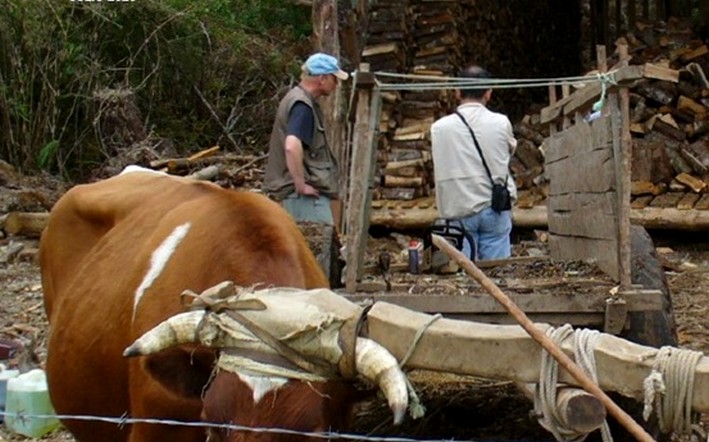The regions of Ñuble and Aysén, along with the province of Osorno, are emerging as the most suitable territories for implementing the Solid Biofuels Law (BS Law), according to a study prepared by the Forest, Energy, and Society Observatory (BES) of the Forest Institute (INFOR), within the framework of the "Support for a Just, Clean, and Sustainable Energy Transition in Chile" project by the Ministry of Energy.
The research—based on 800 surveys of firewood producers and traders—aimed to characterize the market in these regions, identifying gaps and opportunities to successfully apply the new regulation.
"These results will contribute to a better implementation of the Solid Biofuels Law, especially in the prioritization and targeting of measures such as inspection activities. They will also be key to strengthening the firewood market modernization program promoted by the Ministries of Energy and Agriculture. Furthermore, the Ministry of the Environment will be able to use this information to optimize the current atmospheric decontamination plans in the country," explained Rafael Sanhueza, an INFOR researcher.
Challenges in the South of the Country
The report also warns that regions such as La Araucanía and Los Ríos face greater difficulties in formalizing the market, due to the high fragmentation of producers, the prevalence of informal trade, and the complexity of ensuring the legal origin of firewood.
"In Los Ríos, for example, there is a lack of infrastructure for drying and storing firewood during winter, which is critical in cities like Valdivia, where rains are constant. In this region, as well as in Los Lagos, the State should support traders in building or roofing storage centers, which would increase the supply of dry firewood. Another relevant challenge in the south is traceability, given that illegal logging and timber theft remain problematic," stated Dr. René Reyes, an INFOR researcher.
Local Production and Energy Transition
The study confirms that firewood production and marketing in Chile has a marked local character, influenced by factors such as land distribution, availability of forest resources, and the socioeconomic conditions of each territory.
These findings reinforce the need to design differentiated strategies by region, in order to move towards a more formal, efficient, and sustainable firewood market.
"The just energy transition not only requires new energy sources but also modernizing the solid biofuels market. This study provides concrete evidence to support producers and traders, as well as authorities, in the challenge of reconciling the tradition of firewood use with the urgency of cleaner and more responsible consumption," concluded Sanhueza.







Comments (0)
No comments yet. Be the first to comment!
Leave a comment